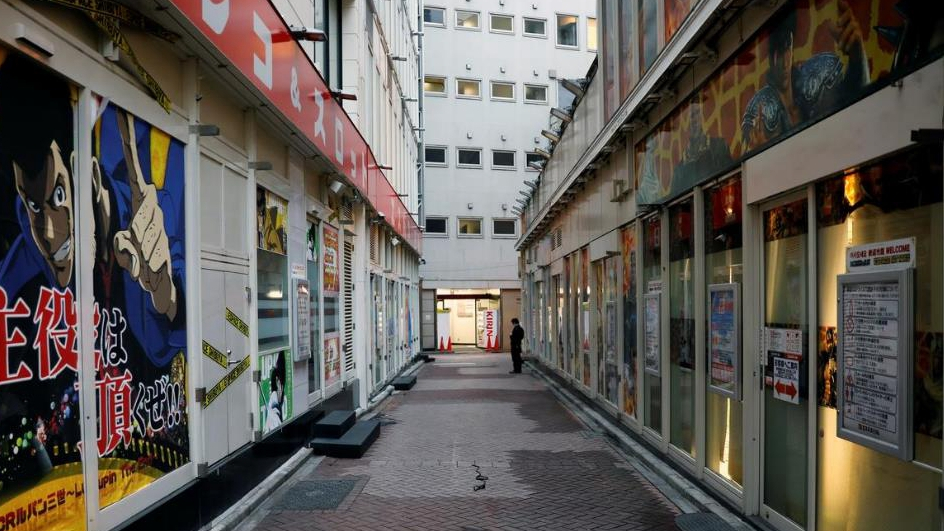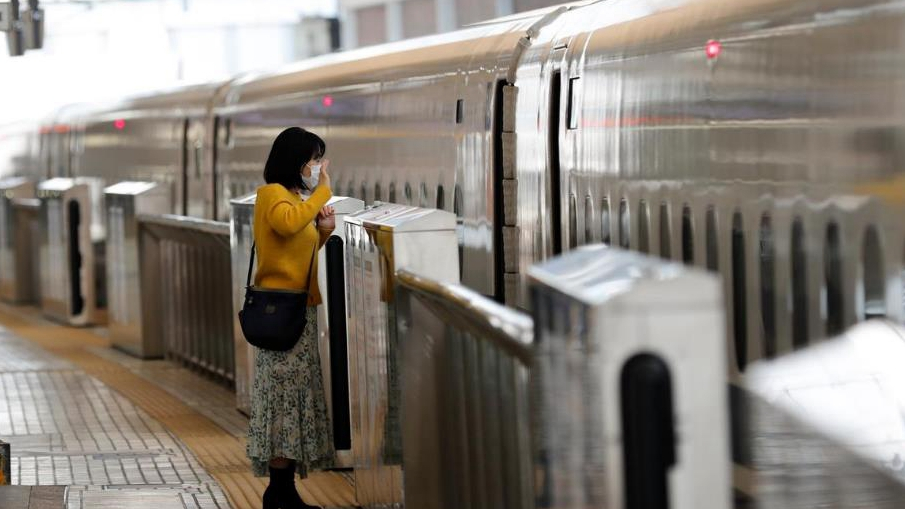
A man stands in front of a closed Pachinko parlour, following the COVID-19 outbreak, in Tokyo, April 28, 2020. /Reuters
A man stands in front of a closed Pachinko parlour, following the COVID-19 outbreak, in Tokyo, April 28, 2020. /Reuters
Japan will formally decide on Monday whether to extend its nationwide state of emergency, said the country's public broadcaster NHK, after Prime Minister Shinzo Abe warned citizens to prepare for a "drawn-out battle" against the coronavirus.
The nationwide state of emergency in Japan is set to expire on May 6 and the government is reportedly planning to extend the emergency for about a month.
Some countries are restarting business activity after closures and social distancing measures to contain the spread of the virus, even with Japan seeing far fewer infections and deaths than hot spots in the United States and Europe.
But the Japanese government has called for vigilance during the long Golden Week holiday - normally a peak travel period - that runs through May 6, calling on people to stay home and reduce contact with others.

A woman waves to a relative aboard a train on a platform of Tokyo station where fewer people than usual are seen during Golden Week holidays following the COVID-19 outbreak, in Tokyo, April 29, 2020. /Reuters
A woman waves to a relative aboard a train on a platform of Tokyo station where fewer people than usual are seen during Golden Week holidays following the COVID-19 outbreak, in Tokyo, April 29, 2020. /Reuters
The government will make a formal decision on the state of emergency as soon as Monday after convening a meeting of experts on the virus, NHK said.
The experts are reported to analyze the state of the pandemic and discuss the benchmarks for lifting the declaration, which will be taken into account when the government makes its final decision.
Citing a draft of the experts' proposals, the Sankei newspaper reported that experts will propose that some restrictive steps will be needed for more than one year as the number of new infections will not fall to zero for some time.
On Thursday, Abe said it would be hard to return to everyday life on May 7.

Medical workers transfer a patient with mild symptoms of coronavirus disease (COVID-19) into to a hotel following the COVID-19 outbreak, in Hashima, Gifu prefecture, April 21, 2020./Reuters
Medical workers transfer a patient with mild symptoms of coronavirus disease (COVID-19) into to a hotel following the COVID-19 outbreak, in Hashima, Gifu prefecture, April 21, 2020./Reuters
He initially declared the emergency on April 7, for Tokyo and several other prefectures after a jump in infections, and later extended it nationwide.
The emergency gives governors greater power to tell people to stay at home and ask businesses to close, but it does not mandate penalties in most cases for non-compliance, relying instead on social pressure and respect for authority.
Japan has had more than 14,000 confirmed cases of the coronavirus and 430 deaths, according to Johns Hopkins University.
Tokyo has seen a decline in daily reported cases since hitting a peak of 201 on April 17, with further falls into double digits this week, but the city's Governor Yuriko Koike has warned residents not to be complacent.
There are also worries that Japan's low testing regime has undercounted many coronavirus cases.
(With input from agencies)